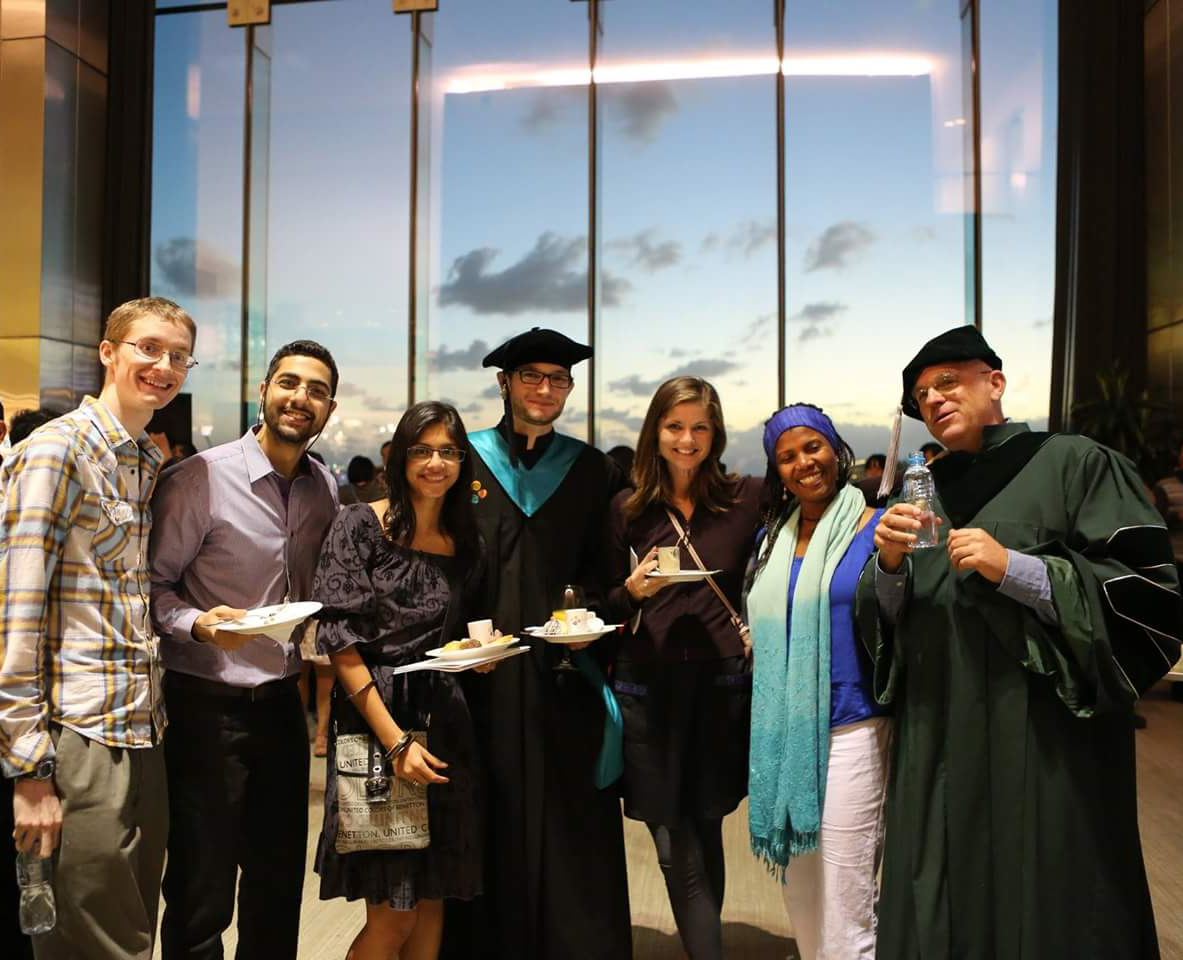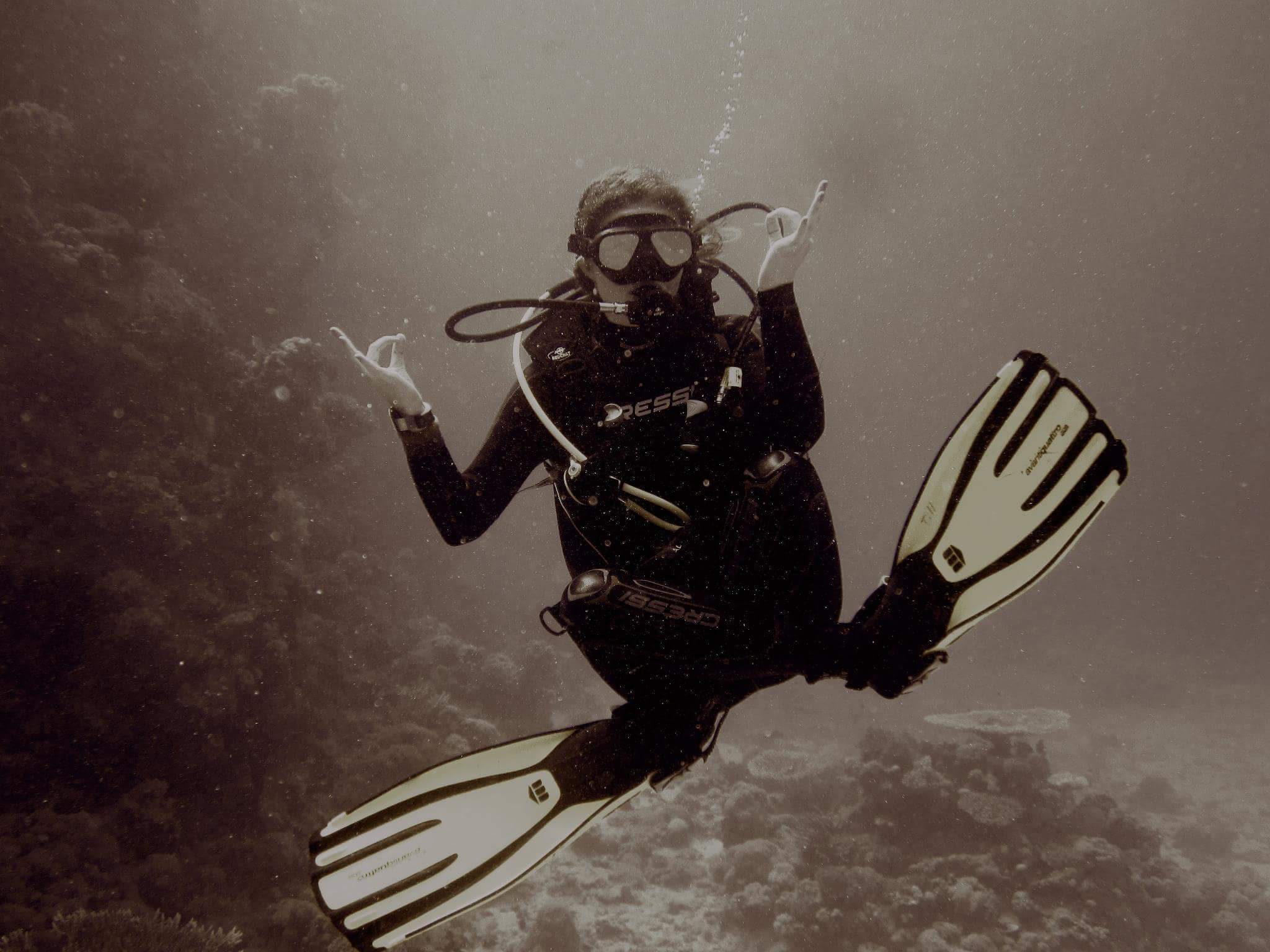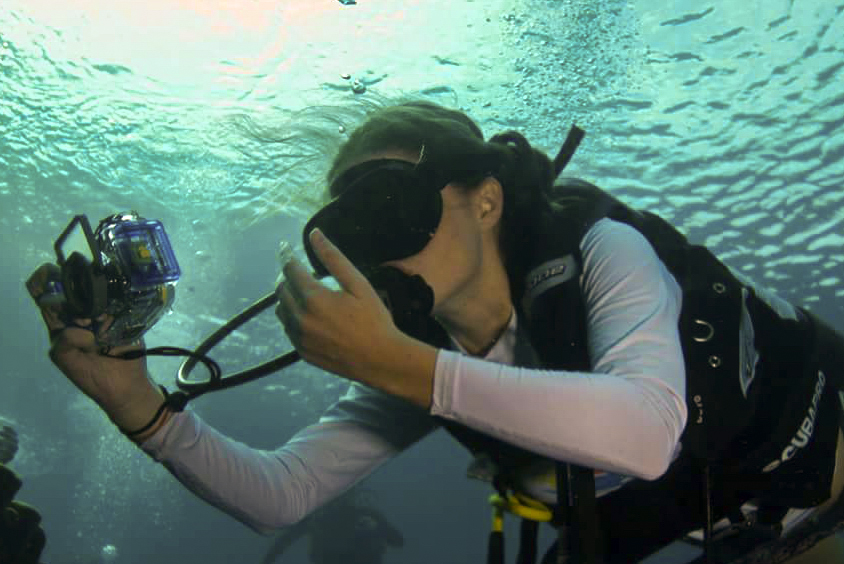Pioneering research from sea to space

Aubrie O’Rourke (third from right) celebrating milestone of KAUST graduates at Commencement ceremony reception.
Since childhood, Aubrie O'Rourke (Ph.D. '15 in marine science) has been fascinated by the underwater world. It is "the final frontier—outer space on Earth," she said.
When an opportunity with the U.S. National Aeronautics and Space Administration (NASA) was offered to her to help set the path for eventual missions to Mars, she had to take it.
O'Rourke landed an Alfred P. Sloan Foundation Award Fellowship with NASA, something that fits exceedingly well with her ambitious dream to "gain the knowledge and skills to cure disease."
A pioneering spirit is easy to detect in O'Rourke. She was one of the first class of students to pursue doctoral studies at KAUST. For her, the "chance to be part of a pioneering institution in Saudi Arabia" was too good to pass up, she noted—much like the chance to conduct research on the bacterial colonies that cohabit with astronauts aboard the International Space Station (ISS).
"This is a new award that broadly focuses on the built environment in the context of the space station. The field explores how we shape the bacteria that live among us and in turn how they shape us," she explained.
Supporting impactful research
The fellowship, which is awarded by the NASA Space Biology Program, runs for two years and gives O'Rourke the chance to study the Burkholderia cepacia or B. cepacia bacterial group or complex of bacteria that can be found in soil and water. O'Rourke will work at the J. Craig Venter Institute (JCVI) in La Jolla, in her native California.
Studying how microbes and microorganisms evolve and exist in both the ocean and space can help ascertain how bacteria would react during the course of a lengthy space trip to Mars in the event of a crew member falling ill.

Aubrie O’Rourke exploring her fascination for the underwater world — the final frontier.
"The field explores how we shape the bacteria that live among us and in turn how they shape us. I'm very excited to work on a water organism such as Burkholderia from an environment as unique as the ISS. The whole project is a dream come true. It is an honor to work for NASA at JCVI," O'Rourke said.
The B. cepacia bacterial group or complex of bacteria are often resistant to common antibiotics, according to the U.S. Centers for Disease Control (CDC), which has triggered interest in understanding why these bacteria have been isolated in the potable water system on the ISS.
Delving into the research
"I will receive 67 samples, which include isolates of Burkholderia cepacia, Burkholderia multivorans and Ralstonia species, from the potable water system of the ISS across 22 missions," O'Rourke explained. She will sequence the respective genomes from the potable water system of the ISS and that of a terrestrial control strain to then mine for pathogenicity islands and any indicators of potential for enhanced virulence.
In addition, O'Rourke will "assess their antibiotic drug resistance, tolerance or persistence and finally use transposon sequencing to identify the genes which contribute to their ability to sustain in the ISS water system," she noted.

KAUST alumna Aubrie O’Rourke (Ph.D. ’15 in marine science) conducted research in the Red Sea and harvested sponges that were screened for HIV-1 inhibition.
It is presumed that microgravity and radiation affect the health of astronauts over time. An interesting aspect of O'Rourke's research is the exploration of how "bacteria also succumb to the effects of microgravity and radiation, which can alter their phenotype and potentially their genotype and in turn their associated virulence and pathogenicity," she said.
-By Meres Weche, KAUST News.
Related links:

